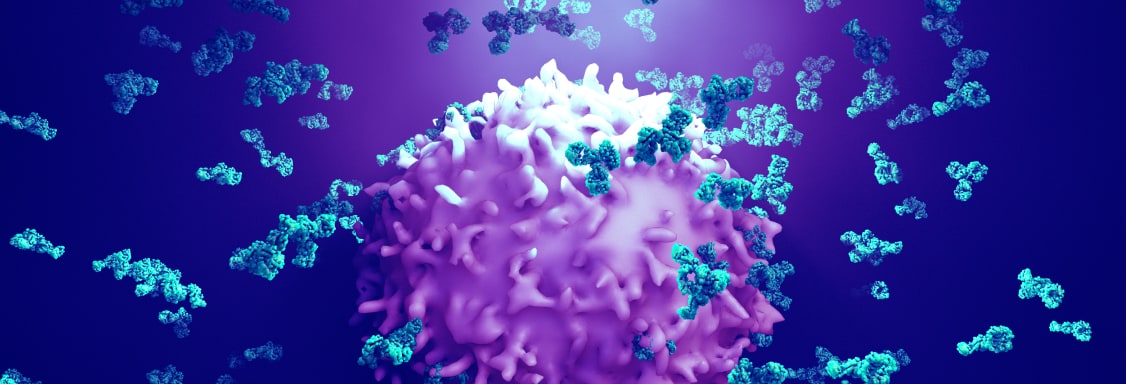Our Approach
Building the Future of Oncology Treatment
Immunotherapy offers the potential to bring the powerful disease-fighting capabilities of the body’s natural defenses to bear against cancer.

Despite their promise, the full potential of immunotherapies has not yet been realized: Further innovation is essential to ensure that more patients can benefit meaningfully from them.
We founded ALX Oncology to develop highly differentiated medicines that optimize the ability of the immune system to fight cancer and fully deliver on the promise of innovative cancer therapies. We started by creating evorpacept, a molecule that is designed to inhibit CD47 while minimizing the dose-limiting toxicities inherent with previous CD47-blocking approaches.
In clinical studies across a wide range of tumor types, this novel approach has demonstrated significant potential to engage the innate immune system to improve patient outcomes and elevate the standard of care.
Leading the Field
Extensive preclinical and clinical research validates the innovative science that powers ALX Oncology.
Our lead immuno-oncology compound, evorpacept, is designed to be a highly differentiated CD47-blocking agent and has demonstrated a well-tolerated safety profile across multiple Phase 1 and Phase 2 clinical trials that have included more than 700 patients (data on file). Evorpacept showed improvement in overall response rates in the randomized Phase 2 ASPEN-06 clinical trial when evorpacept was added to trastuzumab, ramucirumab and paclitaxel in HER2+ advanced gastric cancer patients. Evorpacept is currently being evaluated across multiple tumor types in combination with many of the important cancer therapies available today. Evorpacept has the potential to transform clinical practice by becoming a critical component in standards of care across tumor types.

Compelling Potential
Evorpacept has been investigated in more than 700 patients to date.
Results from these clinical trials suggest that evorpacept’s proprietary design, combined with the wide range of cancers that overexpress CD47, can create the potential for new standards of care for many patients with solid tumor and hematologic cancers.
Explore Our Robust Data
Powering the Immune System to Defeat Cancer
Learn more about evorpacept and its potential to mobilize the full power of the immune system against a wide range of cancers.
Learn More About Evorpacept